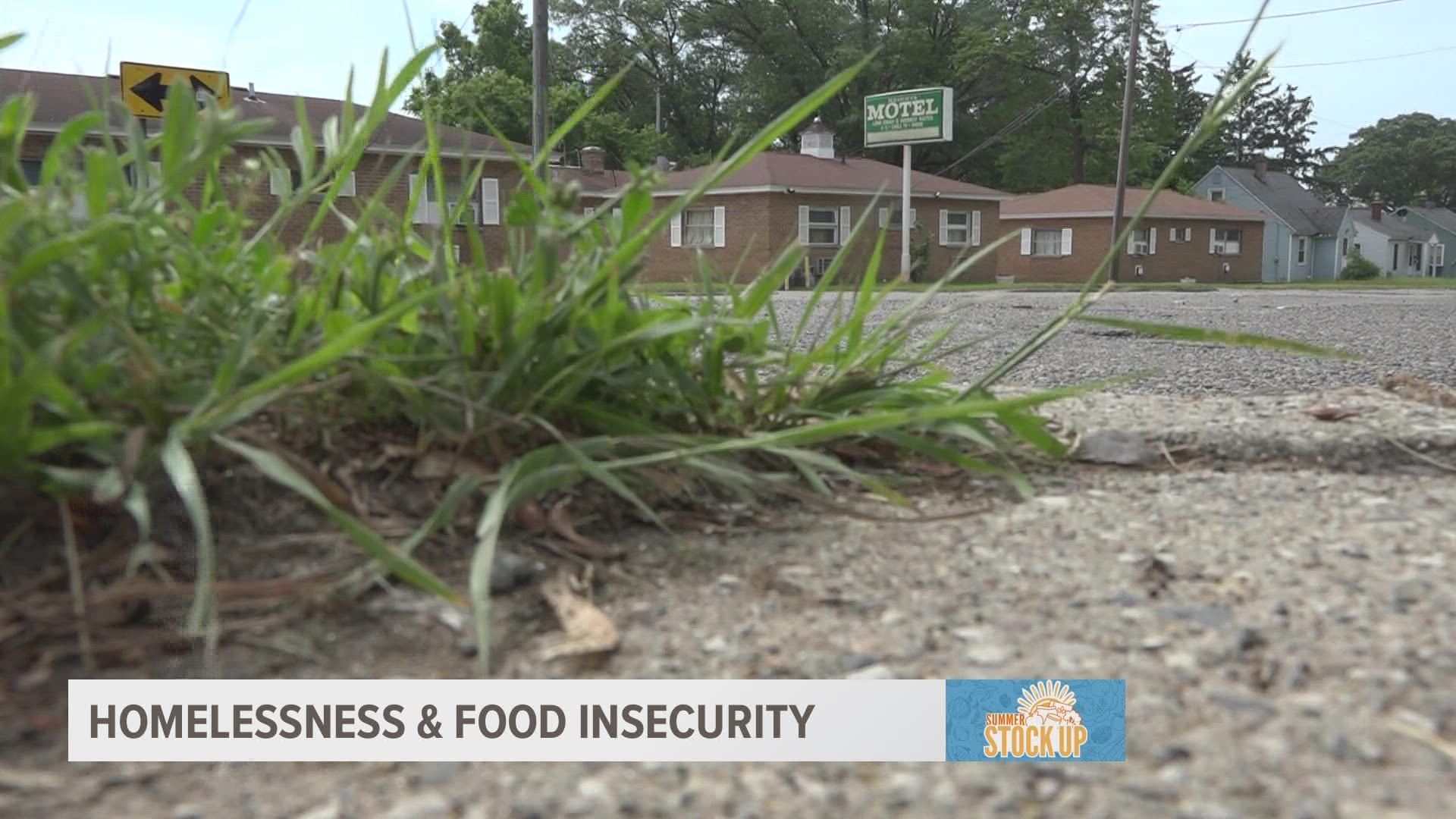MUSKEGON, Mich. — The COVID-19 pandemic brought brand new challenges to families across the globe, and the lakeshore was no different.
The United Way of the Lakeshore processed 749 homeless families in 2020 and 497 in 2021. Representatives with the organization say those numbers are only part of the larger issue.
"People are homeless for a wide variety of reasons, a good number of which are at least partly and often mainly beyond a person’s control," said Janavive Routt with United Way of the Lakeshore. "Once an individual or family loses their home, getting back into housing can feel nearly impossible."
Routt says for as many families as her organization processed and helped to find resources, there are many that have not come forward. She said a number of reasons cause people to hesitate, including fear of parents being separated from their children, a lack of proper identification or becoming discouraged when they face long waiting periods.
"While many organizations and programs in our community provide housing and services for homeless individuals and families, the current level of resources does not meet the need." Routt said. "This, unfortunately, means that not everyone can get help."
Adding to the growing number of families experiencing homelessness is a major lack of affordable housing on the Lakeshore. Routt says landlords are selling properties and pricing out families, leaving them without anywhere to turn.
"The available housing is just so difficult to find, and we’re finding many of these families living in these motels for years." Routt said. "Some of these rooms are very small, maybe one or two beds, usually don’t come equipped with blankets pillows towels refrigerators microwaves, none of the sort."
Routt sent 13 ON YOUR SIDE information about the motels housing many of their families:
- Motel #1: The more “affordable” rooms they offer are at full capacity (more than 50 units). These rooms typically start at $350 per week and do not come with any amenities. No blankets, towels, sheets or personal care items. No laundry service on site. No microwaves or refrigerators. The other portion of their motel costs $490 per week and has about 20 open out of 58 rooms. This side offers cleaning every 3 days, along with towels, bedding and some personal care items.
- Motel #2: 28 out of 29 units are filled. Cost is $400 per week
- Motel #3: At full capacity (18 units). Cost is $350 per week
Routt said between those 3 motels, there is a total of 155 units, of which 134 are filled, and a majority of them are long term stays. She also said much of the time the parents of these families are still working full time in order to afford that shelter, making food difficult to afford, if not impossible.
Especially as schools let out for the summer, local partners like the Boys and Girls club become crucial. They provide a space for kids experiencing homelessness or food scarcity to have a safe space outside of school with access to healthy meals, and it allows parents to find childcare while they work full time.
"It’s a great way for them to come to a place they can get great life lessons, have connections with other kids, have mentors that care about them," said Routt.
At the Lakeshore Boys and Girls Club, they have a program called 'club bucks' which function like money inside the facility. kids can earn them by participating in programs, or working with other programs within the club, and then the bucks can be spent on snacks, toys, games and other prizes.
When we went for this story, the Club Bucks table was full of prizes and toys, but the day before the kids had completely cleared out almost every food item. Routt says that demonstrates just how important food drive programs are, providing meals and snacks to kids in need.

